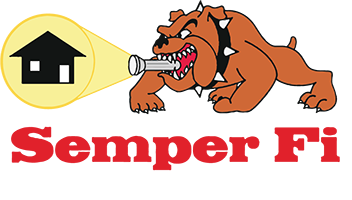In our last article, we mentioned how a home inspection can help be your first line of defense in potentially limiting your liability as a real estate agent from some lawsuits.
As promised, this week we bring you
Top Ten Ways a Real Estate Agent Can Sharply Reduce Professional Liability Exposure
relating to a home inspection:
 The International Association of Certified Home Inspectors has a program specifically designed for real estate agents. Register for InterNACHI’s free, negligent referral protection plan for real estate agents.
The International Association of Certified Home Inspectors has a program specifically designed for real estate agents. Register for InterNACHI’s free, negligent referral protection plan for real estate agents.- Insist that your client hire a professional home inspector to inspect the property, and strongly recommend that the inspection also include ancillary inspections for the presence of wood-destroying insects, as well as harmful pathogens, such as mold and radon.
- If you are representing the seller, consider having the home inspected before the sale. This helps the sellers confirm that there are no major systems in need of immediate replacement or repair and no known safety hazards.
- Manage your clients’ expectations. The time invested in this part of the process helps everyone involved. You can inform your clients about what can reasonably be discovered by a visual inspection of a home that is full of items – such as furniture, carpet, and storage – that can physically restrict the scope of the inspection.
- Be sure to carry your own Professional Liability Insurance.
- Review the inspector’s Pre-Inspection Agreement to make sure that it contains a clause that requires buyers to notify the inspector within no more than 14 days of the discovery of any defect for which they believe the inspector is responsible.
- Avoid conflicts of interest. You have a fiduciary duty to recommend the very best inspectors based solely on merit, not any types of benefits you may receive from doing so, or any formal contracted relationship you may have with an inspector – or any inspector with whom you have a close personal or blood relationship.
- Always recommend a home inspector based on value – not just on price. Good inspectors charge accordingly and may not always be the cheapest option available. Trying to save your client $100 on a home inspection could wind up costing them $10,000 in home repairs down the road.
- Only recommend inspectors who adhere to a strict Code of Ethics and Standards of Practice.
- Recommend inspectors who participate in InterNACHI’s We’ll Buy Your Home Back Guarantee – such as us here at Semper Fi Home Inspections.
And, as a bonus:
11. Always attend the home inspection.
Your presence is a clear indication of your professionalism and concern for your client’s interests, two factors well-known to engender referrals. Your presence also affords an opportunity to refocus your client’s attention to the limited nature of the inspection.



